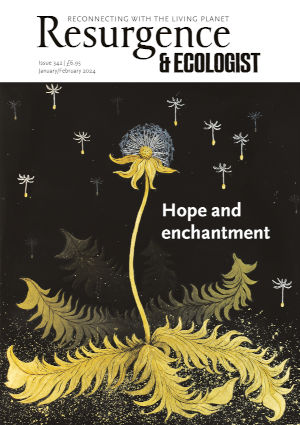When John Vidal began his pioneering coverage of environmental issues in the late 1980s, annual CO2 emissions were nearly half what they are today and wildlife populations were around double. It would be easy therefore to meet the news of Vidal’s death from cancer at the age of 74 in October 2023 with a grim sense of futility. Yet that would be the opposite of what the former Guardian environment editor has taught – which is that brave, clear-minded thinkers can sound alarms that change the direction of the world.
Vidal’s final book, Fevered Planet: How Diseases Emerge When We Harm Nature, published in June 2023, embodies that commitment to its utmost. Drawing on 20 years of journalistic exploration – from the DRC’s equatorial forest to the slums of Bangladesh – Vidal worked through his own illness to bequeath a final plea: repair our broken relationship with the natural world before more deadly disease is unleashed.
From animal agriculture to urbanisation, deforestation and soil erosion, the book unpacks the myriad ways in which diseases like Ebola, mpox and SARS are born and spread. Surprising facts and the dispelling of misinformation meet the reader at every turn, such as the possibility that the common cold emerged from horses, that bats are no worse in terms of viruses than most other mammals, and that until around 10,000 years ago nomadic humanity likely had “excellent general health”.
Unlike news stories, however, which often prioritise human experience or place the blame for disease on other beings, Fevered Planet is unwavering in its understanding of the human and the non-human as inexorably linked. Take, for example, the origins of the Nipah virus (the inspiration for the 2011 film Contagion), which has since been linked to the human-exacerbated wildfires that pushed bats out of their usual habitats. According to an epidemiologist cited in Vidal’s book, close to half of all new diseases that have travelled from animals to humans since 1940 can be traced back to human actions.
Reading through the book’s forensic journey – which at times unfolds almost like a work of detective fiction – I was reminded of my very first job, over a decade ago, researching stories for a documentary film company. I’d been asked to investigate what a real-life version of the film Contagion might look like. And although I laid out the various possibilities, including lab escape and a forest ‘spill-over’ event, a deadly pandemic on a global scale just wasn’t thought to be that likely. The documentary didn’t go ahead.
Knowing that the same conclusion wouldn’t be reached today is reassuring and disturbing in equal measure. Covid-19 is of course largely responsible for that change in awareness. But so too is the research into disease ecology that this book lays out, as well as the journalism, like Vidal’s, that is helping to explain and share the science. Whether the world is listening sufficiently, though, is another matter. Covid-19 may have shown that we weren’t scared enough of the threat of pandemics, yet Fevered Planet argues that we still aren’t as scared as we should be. Just look at the bird flu currently decimating farmed and wild bird populations on an unprecedented scale.
Ever the responsible reporter, however, Vidal does not leave us without hope. The answers are all within our reach, he notes; but we need to fuse veterinary, human and environmental knowledge into an action plan to protect planetary health. “With luck and reflection, the coronavirus pandemic may be seen to lead to a deeper understanding of the environmental ties that bind us together,” he writes – since only by recognising our responsibility for the causes of disease “will we have the motivation to address them at source”.
In this way, Vidal’s parting book is perhaps his most valuable yet. It is now down to us, his readers, to ensure that his last words become his loudest of all.
Fevered Planet: How Diseases Emerge When We Harm Nature by John Vidal. Bloomsbury, 2023. ISBN: 9781526632272.







